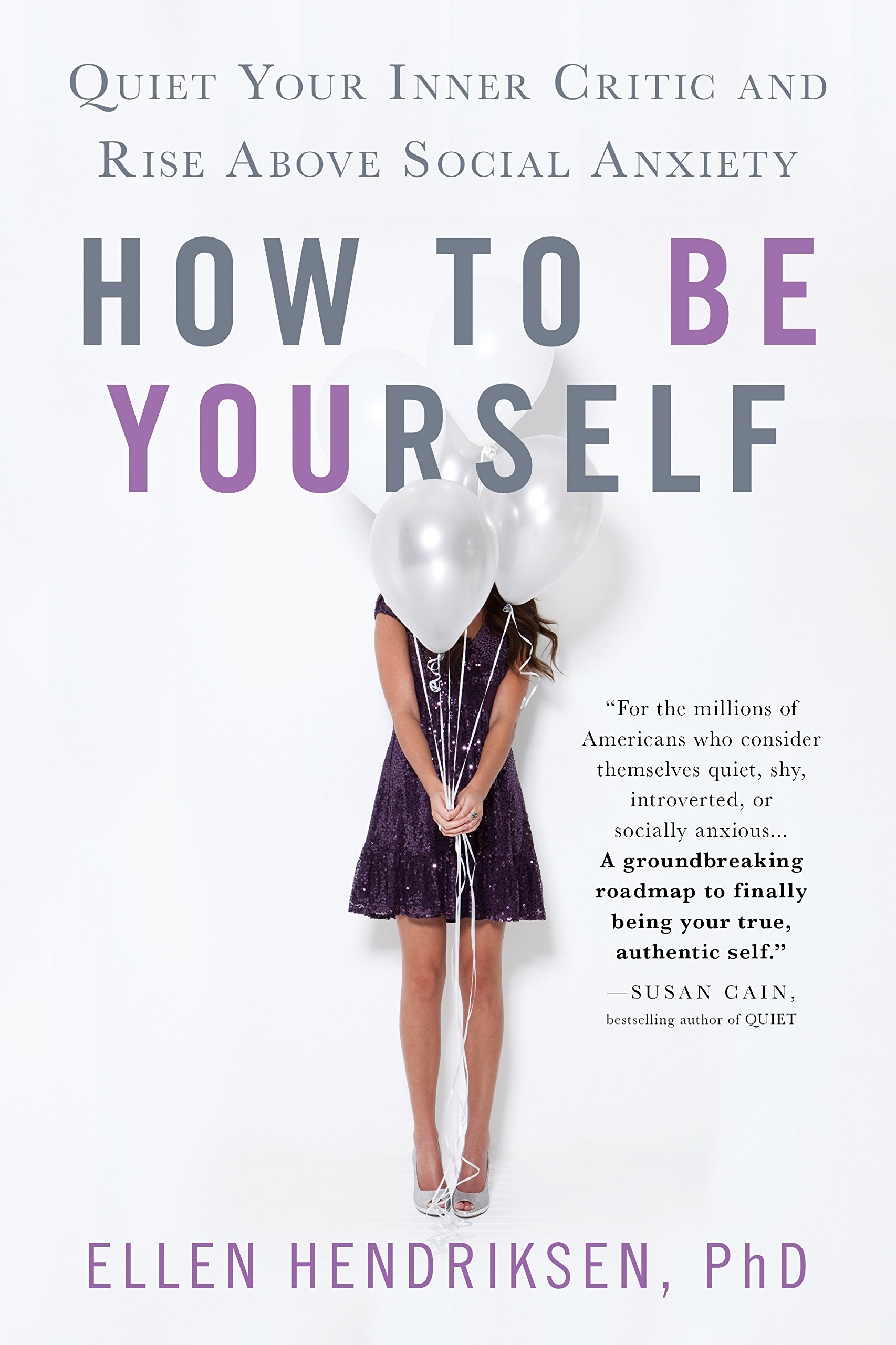How to Encourage Someone to Go to Therapy
Know someone who might need help? The Savvy Psychologist covers the nuts and bolts of how to encourage someone to seek therapy–and how to deal with what they might say to you in return.

In last week’s episode, we covered 5 common myths about therapy, including how to deal with macho men who think therapy is for the weak, the three things that can get you hospitalized, and much more.
Sponsor: Visit GoDaddy.com to get the right domain for your business. Use offer code qdt28 to get 28% off new product orders. Some limitations apply, see website for details.
Thanks to questions from listener Ellie Bradish of Milwaukee, WI, as well as several anonymous listeners, this week we’ll look at 5 questions related to talking to someone who could benefit from therapy.
Buy Now

Question #1: How Do I Know if He or She Needs Help?
Maybe this is just a rough patch, or maybe this is serious. If it’s hard to tell, think about two things: distress and impairment.
With distress, look for signs of strong, persistent negative emotion, like prolonged crying jags, panic attacks, frequent angry outbursts, any kind of violence, a turn for the worse in personal hygiene, or a withdrawal from life.
You can also use your own distress as a proxy: if you’re scared or freaked out by your loved one’s behavior–like how many times they’ve lost their temper or how many days they’ve spent in bed, or if you’ve found a stockpile of pills–let your own feelings be your barometer. Go with your gut. Deep down, you know if something’s really wrong.
Next, impairment means that whatever’s going on is getting in the way of his or her life. For example, maybe he’s missing days at work, is drunk or hungover so often that he can’t function, the fridge is empty or the trash is piling up because she’s scared to leave the house, or she’s done some serious burning of bridges with friends.
Mental illness is usually first noticeable at home. Many people hold in their problems like a sucked-in gut at work or in public, but when they get home, they let it all hang out. It’s the people closest to them (i.e. you) who bear the brunt of mental illness. In a way, it means they trust you–but it sure doesn’t make things easy.
Question #2: How Do I Approach Them?
First, pick a good time. Don’t try to have a serious conversation with someone who’s drunk, hungover, high, angry, or distracted. Turn of the TV. My personal favorite setting for a heart-to-heart talk is on a long car ride.
Approach it as a problem of your own. Say I’m worried. I’m concerned, I’m afraid.
Be supportive. Keep telling them you love them, you’re there for them, or that you care about them. Again, use “I” statements, like “I care about you, I love you, I’m worried about you,” not “you” statements. like “you need help” or “you have a problem.”
Work really hard not to get frustrated or angry, even if (when!) they get defensive, tell you that you’re the one who needs help, or put you down. Your loved one is like a porcupine; those sharp barbs come at you because he’s scared.
Anger is what’s called a secondary emotion—it’s the armor that covers up the soft, vulnerable underbelly of the primary emotion, which could be shame, hurt, fear, humiliation, or guilt. As you discuss, listen closely for the softer emotion under the anger; hearing it makes it possible for you to stay connected, sympathetic, and on message.
For more on how to have a difficult conversation, see How to Stop Avoiding Conflict
Question #3: But What If They Don’t Think There’s a Problem? How Do I Say, “You Need Help,” Without Saying Those Words?
This takes some planning. Take a page from fiction writers and “show, don’t tell.” Rather than labeling them by saying something like, “you’re an addict and you need help,” instead, show evidence, through indisputable facts, that you think there’s a problem. For example, “There were 40 beer cans in the trash this week, you’ve missed 4 days of work this month, and the doctor says you’re in the early stages of cirrhosis.”
This must immediately be followed with empathy and love. Your cold, hard facts can’t stand alone—they need to be wrapped in a package of compassionate concern so your loved one can hear them. For example, after the facts, you can add “I’m really worried about you. I love you so much and it makes me sad that you’re so miserable. For me and our family, I’d like you to do me a favor and come with me to see a counselor. I want you to be around to see our kids grow up.”
Put it all together in what’s called the “sandwich method.” Picture a constructive request between two slices of compassionate support.
For example, “Sweetheart, I love you and want you to be happy and healthy. Since you got laid off, you’ve been glued the couch, you’ve gained 30 pounds, and you haven’t been out of the house in a week. You don’t have to feel this way. I got a name of a good counselor. Can we go together next Tuesday? I love you and I’m here for you no matter what.”
Question #4: How Else Do I Make the Message Easier to Hear?
You can grease the wheels in lots of ways; here are 8 ideas:
- Counterintuitively, make it about you. This allows them to save face by going to therapy, on the surface, to appease you. For example, “I’m worried; can you do this to put my mind at rest?”
- Don’t say “you.” Or “your drinking,” or “your anger,” which makes it easier to take things personally. Instead, frame the problem as an “it”: “this depression,” “these outbursts,” “this drinking habit.” Approach the conversation as you and him as a team against a problem. Frame it as wanting to solve the problem together.
- Do it for the kids. If your loved one has kids, ask him or her to do it for them. Parental mental health is directly linked to child health—mental and physical. Your loved one is valuable and worthy enough in and of himself to deserve help, but evoking the kids can be a helpful motivator.
- Lower the bar. Ask your loved one to go for an evaluation. Sometimes the idea of weekly therapy is too much to handle at the outset, so ask her to try one visit.
- Ask him to try it as an experiment. This is often a helpful reframe, and it puts your loved one in the driver’s seat. For example, he can get an assessment, but decide not to take medication. He can get the prescription, but wait to fill it. He can fill it, but not take it. Or if he takes it and doesn’t like it, he can call the physician and say he wants to taper off. Same with psychotherapy: when he goes the first time, he’s also test-driving the therapist. If the therapist seems flaky or distracted, try someone else.
- Stress you’ll be with her every step of the way. You’re not trying to outsource your loved one and her problem. Offer to go with her. If you can afford it, offer to pay for it.
- Does your loved one admire or respect anyone who you know has gone to therapy? If you’re not betraying any confidences, offer that person up as a role model.
- Don’t make your loved one do the research. Go online and find two or three practitioners you think might be a good match. Or call your insurance and get a list of practitioners who take your plan. Ask trusted friends for referrals. Look at the therapists’ websites or profiles, then ask your loved one to choose the one they feel most comfortable with. This is particularly important with depression, anxiety, or substance abuse. Depression stomps on initiative, so you have to do it for them. Anxiety is all about avoidance, so you have to gently help them face this fear. Alcoholics and addicts may feel overwhelmed by fear, denial, control, and a long history of burned bridges. Don’t set them up to fail by extracting an empty promise that both of you know won’t get followed through on.
Question #5: What If It Doesn’t Work?
This is a big one. You could try every tip here and they might not work. Unfortunately, you aren’t the person who chooses whether your loved one seeks help or not—only they can do that.
Sometimes, folks just aren’t ready. People go to therapy because they want things to change. If your loved one isn’t ready to change, they’re not going to go. They may not be ready to give up the high of drugs, face whatever they fear, or admit they can’t fix this on their own.
So what then? Sometimes, individuals need to hear it from multiple people over time. In a related example, it’s been said that it takes seven attempts, on average, to quit smoking. Similarly, it may take five, ten, or a hundred people to instill readiness for therapy. But even if your words go unheeded initially, you’ll be one person closer to reaching that magic number.
Bottom line: you can’t make someone go to therapy. Even if you succeed in getting them in the door, if they’re not ready, they’ll drop out–especially, and ironically, if the therapist is good and really touches their pain, instead of allowing them to ruminate, complain, or play the victim.
However, if you or your loved one is in danger, you can bring in the authorities. If they’re going to hurt themselves or someone else, call the police or call 911. But don’t let your role end there. Go to the ER, too, or show up at the court date. Tell the story, complete with the low points. If you feel endangered, give evidence of what they did, like pull a knife, threaten you, etc. If you think they’re a danger to themselves, say why.
Finally, if your loved one isn’t ready, consider setting an example and going to therapy yourself. It’s hard to watch someone you love sink their own ship. A good therapist can offer you a life preserver.
Now for some bibliotherapy!
A book entirely about getting someone to seek treatment is You Need Help!: A Step-by-Step Plan to Convince a Loved One to Get Counseling.
A book to help those with serious mental illness like schizophrenia and bipolar disorder accept treatment is I Am Not Sick, I Don’t Need Help: How to Help Someone with Mental Illness Accept Treatment.
Get more savvy by subscribing to the podcast on iTunes or Stitcher, or get the episode delivered straight to your inbox by signing up for the newsletter. Plus, follow me on Facebook and Twitter.
Please note that all content here is strictly for informational purposes only. This content does not substitute any medical advice, and does not replace any medical judgment or reasoning by your own personal health provider. Please always seek a licensed physician in your area regarding all health related questions and issues.
REFERENCES:
18 & Under: Parents’ Depression Linked to Problems in Children, The New York Times.
Children of Parents with Mental Illness,The American Academy of Child and Adolescent Psychiatry.
Photos of holding hands, woman in distress, couple in therapy, and sleepless man courtesy of Shutterstock.
You May Also Like…





